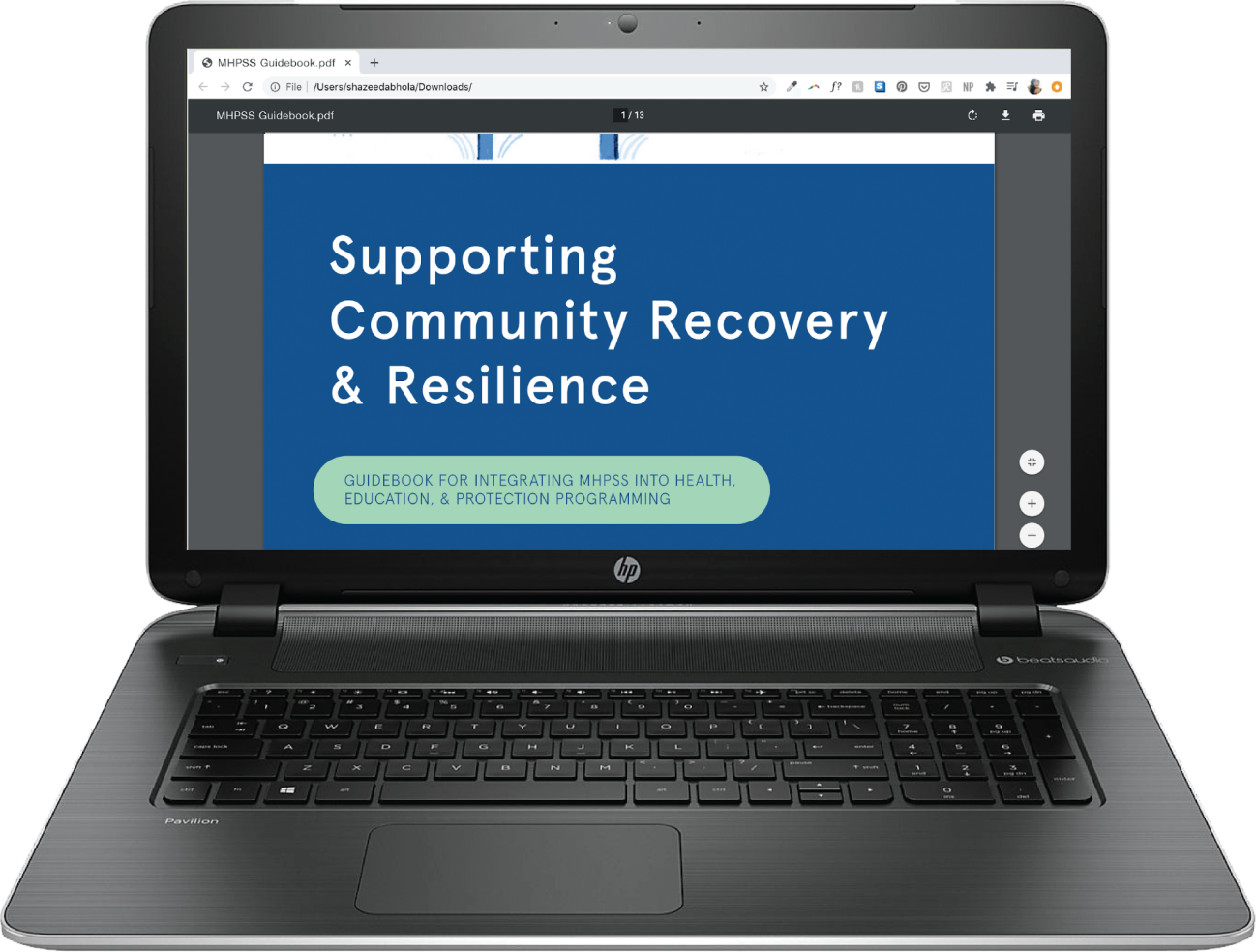
What makes a mental health support tool
useful in emergency settings?
Building an Adaptive Crisis Toolkit
UNHCR + WHO
CHALLENGE
Lengthy guidance doesn’t translate to clear actions.
Individuals and organizations that work in Mental Health and Psychosocial Support (MHPSS) across the globe have countless resources, tools, and guidance on the subject, but few offer a streamlined, clear and concise list of necessary actions to implement in an emergency context. UNHCR, WHO, and UNICEF collaborated on a minimum service package (MSP) to test with local implementers, but needed support in ensuring its usability, feasibility, and desirability.
FIRSTHAND INSIGHT
Rapid decision making requires adaptability.
Effective resources well suited for emergency contexts require clear tasks lists (to streamline rapid decision making) and adaptable forms (field, office, and in transport).
SOLUTION
Try on new perspectives.
Firsthand facilitated a team retreat featuring participatory group work and activities in order to gain a comprehensive understanding of both team and audience requirements.
OUTPUT
A research report and product brief guided a new draft of the minimum service package that is clear, actionable, and contributes to sustainable, integrated MHPSS practices in emergency contexts.
FIRSTHAND PROVIDED: Workshop design, remote facilitation, design research, prototype design, product guidelines and brief










